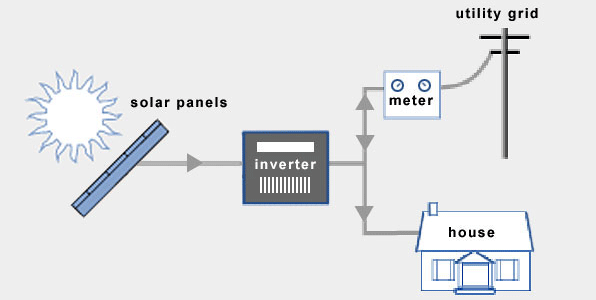
Exploring the Financial Advantages of Solar Power Incentives
The adoption of solar power is not only an environmentally conscious choice but also a financially savvy one, thanks to various incentives that make renewable energy more accessible and appealing to homeowners.
Understanding Solar Power Incentives
Solar power incentives are financial perks provided by governments, utilities, and other entities to encourage the installation of solar energy systems. These incentives aim to offset the initial costs, making solar power a viable and attractive option for a broader range of individuals and businesses.
Government Incentives and Tax Credits
Governments worldwide recognize the importance of transitioning to clean energy. Consequently, many offer tax credits and incentives to homeowners who install solar panels. These incentives can significantly reduce the upfront costs, making solar power a more financially feasible investment.
Utility-Sponsored Programs
In addition to government incentives, some utility companies offer their programs to encourage solar adoption. These programs may include rebates, performance-based incentives, or net metering, allowing homeowners to sell excess energy back to the grid and potentially earn credits on their utility bills.
Feed-in Tariffs: An Additional Income Stream
Certain regions implement feed-in tariffs, a system where homeowners are paid for the excess energy they generate and feed into the grid. This creates an additional income stream for solar power system owners, making the investment even more financially attractive over time.
Renewable Energy Certificates (RECs)
Renewable Energy Certificates, or RECs, provide an avenue for homeowners to contribute to the growth of renewable energy. Homeowners earn RECs for every megawatt-hour of electricity generated by their solar panels. These certificates can be sold, providing additional financial benefits.
Property Value Appreciation
Beyond direct incentives, the installation of solar panels can boost the overall value of a property. Potential homebuyers often perceive solar-equipped homes as energy-efficient and cost-effective, leading to increased property values and faster resale opportunities.
Financing and Incentive Combinations
Various financing options, such as solar leases and power purchase agreements (PPAs), further complement solar power incentives. These models allow homeowners to enjoy the benefits of solar energy without the burden of high upfront costs, making the transition to renewable energy even more accessible.
Community Programs and Group Discounts
Some regions and organizations initiate community programs or group-buying schemes, providing collective discounts on solar installations. These programs leverage the power of community participation, enabling individuals to access solar power incentives more effectively.
Navigating the Incentive Landscape
Understanding the intricate landscape of solar power incentives can be challenging. Working with knowledgeable solar professionals and consulting local authorities can help homeowners navigate the available incentives, ensuring they maximize financial benefits and make informed decisions.
To explore how solar power incentives can make the transition to clean energy financially rewarding, visit Solar Power Incentives. Take advantage of available incentives and unlock the full financial potential of solar power for your home or business.


